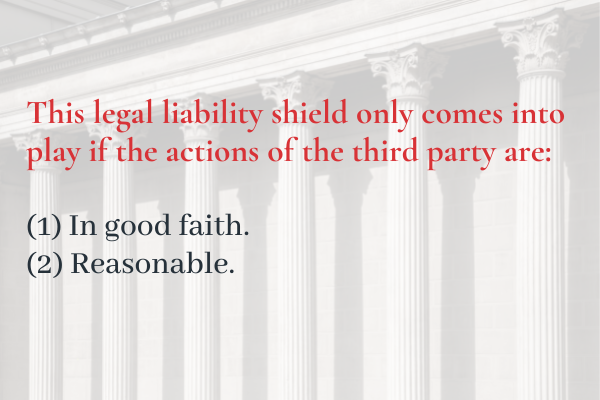The Good Samaritan Law in Virginia controls the liability (or non-liability) of a third party that comes to the aid of an injured person in an emergency situation. This law is relevant if you are hurt in an accident and a fellow driver stops to try and help, but makes the situation worse by making your injury worse. In that situation, the “Good Samaritan” would likely be shielded from civil liability (meaning you could not sue them for monetary damages).
§ 8.01-225 of the Virginia Code states that any person who “in good faith, renders emergency care or assistance, without compensation, to any ill or injured person at the scene of an accident, fire, or any life-threatening emergency, or en route therefrom to any hospital, medical clinic or doctor’s office, shall not be liable for any civil damages for acts or omissions resulting from the rendering of such care or assistance.”
LEARN MORE
Understanding The Virginia Good Samaritan Law and Your Legal Rights
The statute also states that if a citizen helps deliver a baby without having given care or known anyone who has given her care, is not liable for an injury that occurs during the birth. The only exception is if the citizen is grossly negligent, which basically means they have to act recklessly.
The Good Samaritan Law also applies to the following scenarios:
- Administering epinephrine for insect sting treatment
- If a person is requested by police/ firefighters/ rescue to give assistance,
- Possessing a license to render care and does so in good faith (i.e. CPR)
- Using a defibrillator that is available in emergency
- An employee of the school board and administers insulin to a child.
This legal liability shield only comes into play if the actions of the third party are (1) in good faith and (2) reasonable.
For example, a physician giving aid to a seriously injured party without compensation and in good faith in an emergency would not be liable for damages.
The policy rationale behind “the Good Samaritan law” is to encourage fellow citizens of Virginia to help one another in times of crisis where quick action is needed and the time for proper personnel to arrive to just not enough.

But again, the law dictates that the services be given reasonably and in good faith. This is where the line blurs and confusion can occur. The law does not state that any care can be given by a citizen and they’ll be free from liability. The care has to be reasonable and made in good faith.
A good example is a person who stops and pulls another person out of their burning vehicle after a car accident and lays them in the next lane of a busy road/highway. It would not be reasonable to take a person from one danger directly into the path of another. This sort of action would defeat the purpose and the good Samaritan would be liable for their bad use of judgment as their actions could not be considered reasonable. However, a case-by-case analysis is required and what is reasonable in the given situation is a factual issue for a judge or jury to decide.
Therefore, in an emergency scenario in which you must act to save the life of another, ACT! But act reasonably.